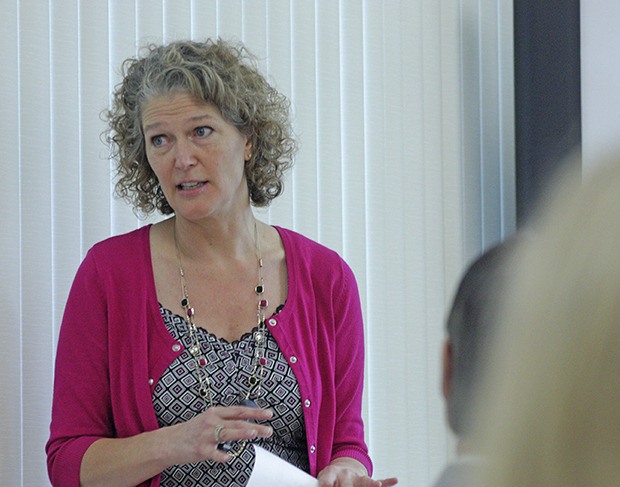Reporter staff
It’s a call to action, a focus on prevention.
The prediabetes rate continues to rise, and few South King County residents know they are at risk.
That’s why the Auburn Valley YMCA brought together medical experts and health care professional together for a diabetes-prevention symposium Nov. 10.
The panel of experts discussed the scope and scale of the diabetes epidemic, highlighted the economic and social costs of the disease, and discussed opportunities for collaborations and partnerships to support community-based prevention efforts.
November is National Diabetes Awareness Month.
“The number of new people with prediabetes continues to rise, and with that the importance of helping residents of South King County understand what a prediabetes diagnosis means,” said Jason Berry, Valley Y executive director. “Type 2 diabetes affects not just the person but entire families as well. But the good news is that it is possible to reverse course — simple lifestyle changes reduce the risk of developing Type 2 diabetes, and the Y can help people make the necessary changes to improve health.”
Business and community leaders, employers and other stakeholders who have an interest in understanding and addressing the diabetes epidemic joined the symposium, posing questions to experts in a roundtable discussion.
Statistics for the Centers for Disease Control and Prevention (CDC) show that one in four Americans (86 million people) have prediabetes, up from 79 million in 2010. Prediabetes is a condition in which a person’s blood glucose is elevated, but not high enough for a diabetes diagnosis. Only 10 percent of those with prediabetes know they have it, but with awareness and simple actions, people with prediabetes may prevent the onset of diabetes.
Wendy Bart, vice president of membership and healthy living for the YMCA, says the risks are there, but so, too, are preventative programs, such as the Y offers.
“(And) this program is working,” Bart said of efforts in lifestyle intervention, diet, nutrition and exercise. “Those who are prediabetic need to be aware, understand the risks and be advocates (for change and prevention).”
The YMCA’s program is part of a Centers for Disease Control-led National Diabetes Prevention Program.
Individuals can assess their risk for prediabetes and Type 2 diabetes by taking a simple test at YMCA.net/diabetes. Through this assessment, visitors may also learn how lifestyle choices and family history help determine the ultimate risk for developing the disease.
Several factors that can put a person at risk for Type 2 diabetes are race, age, weight and activity level. If a person is at risk, a diabetes screening conducted by a physician can confirm a diabetes or prediabetes diagnosis.
WHAT YOU CAN DO
Making some basic lifestyle changes that contribute to weight loss and healthy living can decrease the risk for Type 2 diabetes. Among these are:
• Eat fruits and vegetables every day.
• Choose fish, lean meats and poultry without skin.
• Aim for whole grains with every meal.
• Be moderately active at least 30 minutes per day five days a week.
• Choose water to drink instead of beverages with added sugar.
• Speak to your doctor about your diabetes risk factors, especially if you have a family history or are overweight.
To learn more about the Auburn Valley Y’s Healthy Living programs, contact Kerry Ashby at 253-833-2770 or kashby@seattleymca.org.
PHOTO BELOW: Jason Berry, Auburn Valley YMCA executive director, far left, moderates a roundtable discussion with a panel of experts at the Y’s symposium on diabetes prevention. The panel, included, from left: Wendy Bart, manager, vice president, membership and healthy living, YMCA of Greater Seattle; Pam Kozu, manager, Cardiovascular and Diabetes Services, MultiCare Health Systems; Charlotte Foster, chief nurse executive, Swedish Medical Group; Dr. Frances Broyles, director, diabetes and neuroendocrinology programs, Swedish Medical Group; and Blishda Lacet, program manager, chronic disease and injury prevention, King County Public Health. Mark Klaas, Auburn Reporter


